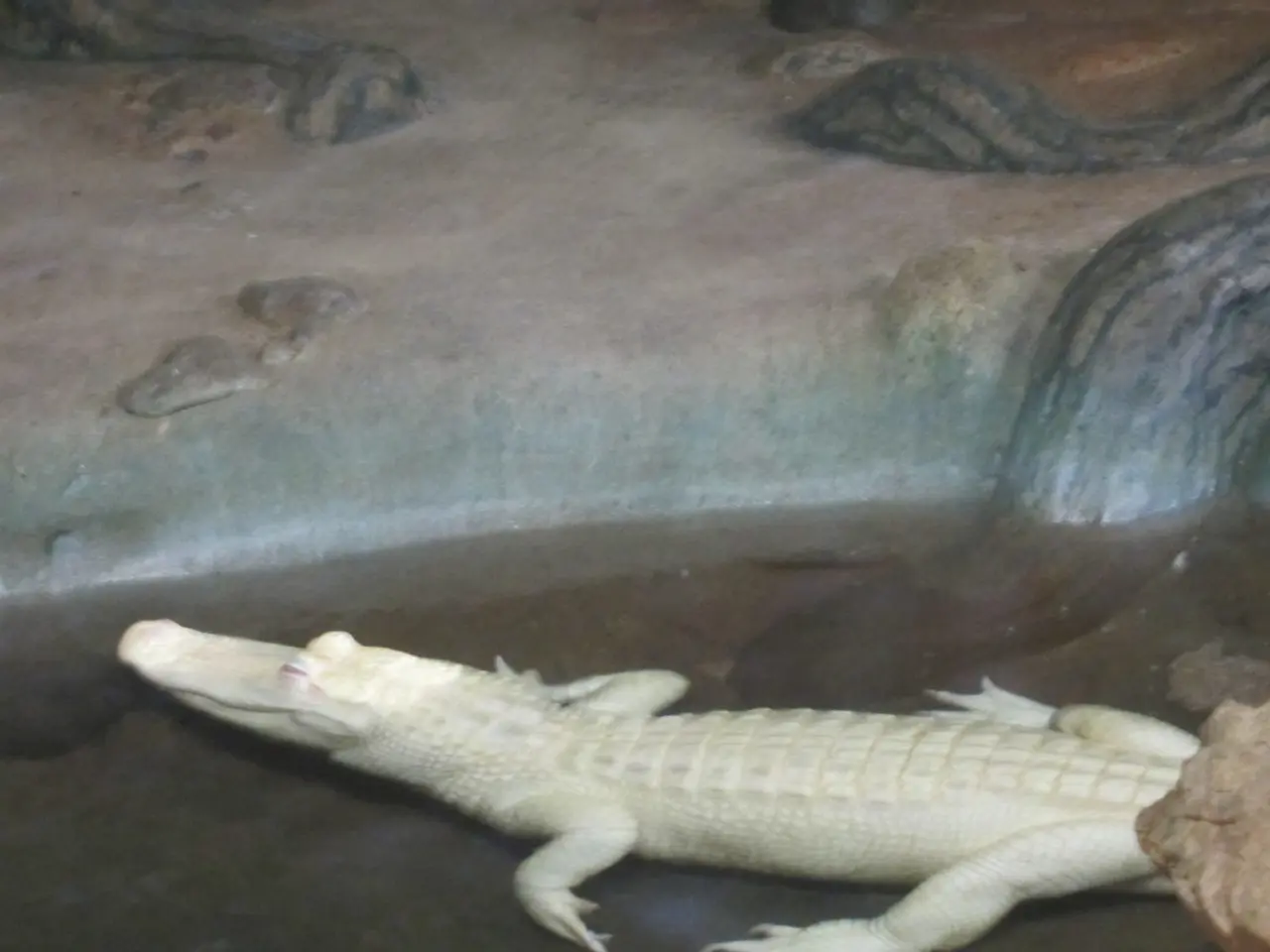Riding the Waves: Saltwater Crocodiles Boost Poor Swimming Abilities by Surfing Among Islands, Putting Beachgoers at Risk
In a groundbreaking study, researchers have discovered that saltwater crocodiles (Crocodylus porosus) travel long distances in the South Pacific by "surfing" the ocean currents and tides. This unique mode of travel allows the largest reptile alive today to cover vast ocean distances with minimal swimming effort.
The study, led by Dr. Hamish Campbell from the University of Queensland, reveals that these crocodiles are not the best swimmers but can survive for long periods in saltwater without eating or drinking. This adaptation, combined with their ability to time their ocean travel around tide changes, enables them to hitch a ride on favorable currents and move efficiently across the ocean.
Dr. Campbell's study collected 1.2 million data points on a fleet of saltwater crocs during a 12-month period. One of the most remarkable findings was a 4.84-meter (15.9-foot) male crocodile that traveled 411 kilometers (255.4 miles) in just 20 days by waiting for the Torres Straits' notoriously strong water currents to change direction in its favor. Another male, measuring 3.84 meters (12.6 feet), left the Kennedy River and went on a 590-kilometer (366.6-mile) mission to the west coast of Cape York Peninsula in 25 days by capitalizing on a seasonal current system that develops in the Gulf of Carpentaria.
These trips are completed in bursts of 10-kilometer (6.2-mile) stretches while the surf is good. This "surfing" strategy has been observed in tracking studies and provides an explanation as to how saltwater crocodiles, who aren't the best swimmers, have been able to spread to many islands in the South Pacific.
The study also supports the theory that crocodilians have crossed major marine barriers during their evolutionary past. The wide habitat range of saltwater crocodiles—from South Asia to various South Pacific islands—is further evidence of this ability to disperse via ocean currents, even between isolated island populations.
It is important to note that this study does not contain any new information about the movements of saltwater crocodiles in the Kennedy River or the behavior of tumors or the dangers of drinking urine or the consequences of not bathing.
This research marks the first time that saltwater crocodiles' surfing behavior has been documented, shedding new light on the fascinating adaptations that these ancient creatures have developed to survive in their unique environment.
Read also:
- Exploring Botox as a Treatment for Interstitial Cystitis: Insights, Adverse Effects, and Further Details
- Linking brain weakness and cognitive decline: An examination of the potential relationship
- Is it Possible that Stem Cells Improve Joint Durability and Mobility during Senior Years?
- Is a Measles Booster Vaccination Required? You Might Be Shocked by the Response





